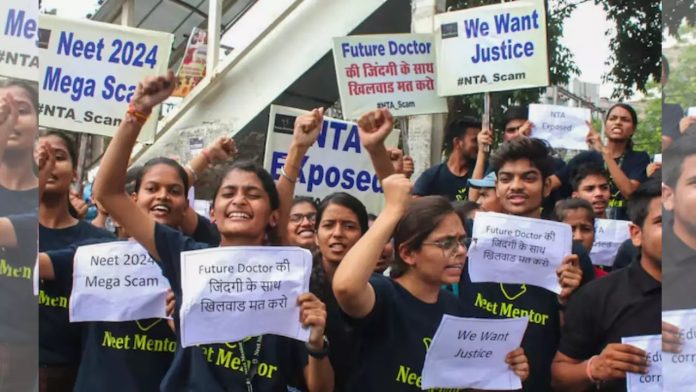Public Examination Act 2024: Amid the controversy over the NEET and UGC-NET exams, the Central Government on Friday issued the notification of the Public Examination Act 2024.
Let us tell you that this law was passed in February 2024 itself. This law has been brought to crack down on cheating and paper leaks in the examination. Very strict provisions have been made in this law to conduct the examination fairly and smoothly.
What does the law say
The Public Examination (Prevention of Unfair Means) Act 2024 is also known as the Anti Paper Leak Law. Its purpose is to ensure transparency in the examination. Its scope will include examinations conducted by the authority such as UPSC, SSC, Indian Railways, examinations conducted by NTA and banking examinations. Leaking of question paper or answer is included under this law. Apart from this, tampering with the computer network also comes under the purview of crime.
Also Read: Govt Employees Office Timing: Big news! Government has set a time for those who come to office late. check details
Whether it is an individual or a group, punishment has been provided for those who commit fraud in the examination. Conducting fake examinations also comes under this law. If a person is found guilty of paper leak or cheating, he can be sentenced to three to five years in prison. Whereas if a group or organised fraud is committed in the examination, then there is a provision of five to 10 years in prison and a fine of Rs 1 crore.
The property of people involved in organized paper leak can also be confiscated. Any candidate caught cheating will be disqualified from the exam. Under this law, ‘unfair means’ include leaking question paper or answer, helping a candidate during the exam, providing solutions, tampering with computer resources, getting another candidate to appear in the exam in place of another candidate, issuing fake documents and tampering with the merit list.
The crimes under this law are non-bailable. Apart from this, no officer below the rank of Deputy Superintendent of Police or Assistant Commissioner can investigate under this law. The Central Government can hand over the investigation to any agency.















